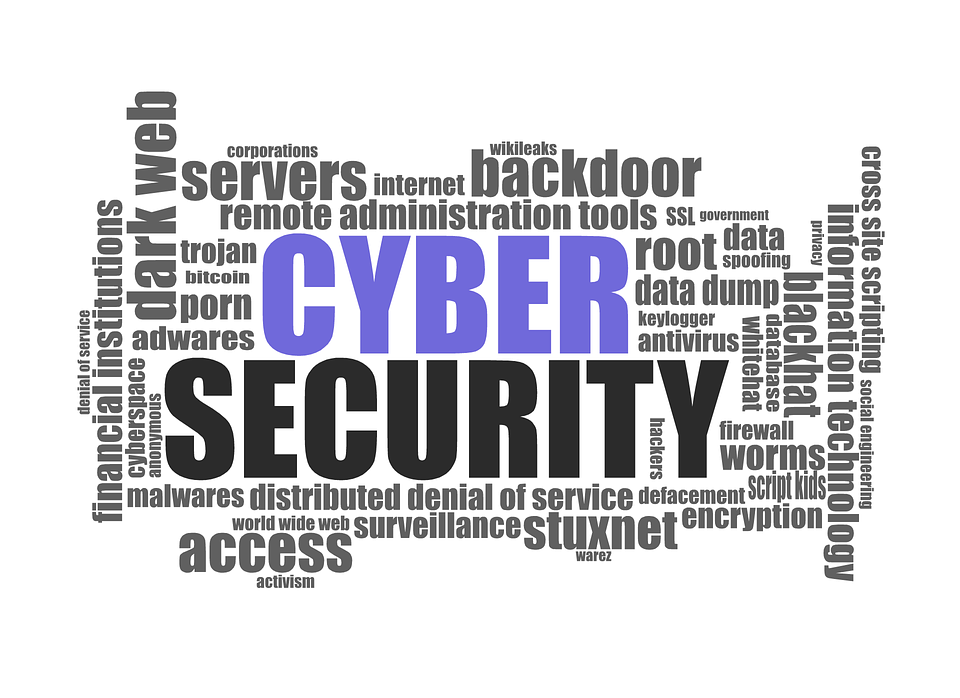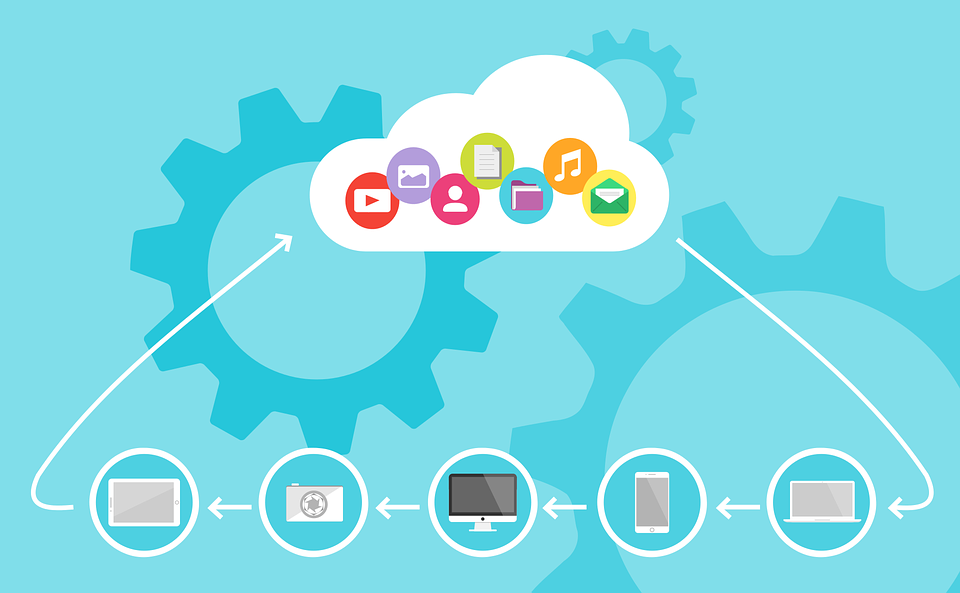7 Commonly Used Network Security Software
Introduction
In this article, you will be able to know and learn about some major network security programs or software, and techniques frequently used to detect, control, manage, and remove malware. Network security and cloud security are necessary to protect your data and devices. So, there is a need to study network security and some common network security software in use.
Some common and valuable terminologies frequently used in cyber security or computer network security are:
Network security
· Network security refers to protecting data and resources from any unauthorized access.
· Network security is a type of cyber security.
· Network security aims to protect the usability, integrity, and safety of a network, associated components, and data shared over the network.
· Network security is a set of technologies that protect the company’s working infrastructure by preventing the entry of potential threats.
· Network security includes antivirus and antispyware programs, a firewall that blocks unauthorized access to a network, and VPNs (Virtual Private Networks) used for secure remote access.
Cloud Security
· Cloud security is also known as cloud computing security.
· Cloud security or cloud-based security refers to a broad set of policies, technologies, applications, and controls utilized to protect virtualized IP, data, applications, and services.
· Cloud security ensures user and device authentication, data and resource access control, and data privacy protection.
Signature
· In computer security, a signature refers to a specific pattern that allows cyber security technologies to recognize malicious threats, such as a continuous byte sequence in network traffic or known malicious instruction sequences used by families of malware.
· A virus signature is a file or multiple files that are downloaded by a security program to identify a computer virus.
Signature-based detection
· Signature-based detection refers to one of the most common techniques used to address software threats leveled at your computer.
· Signature-based threats include viruses, malware, worms, and Trojans.
· Signature-based ID systems detect intrusions by observing events and identifying patterns that match the signatures of known attacks.
Zero-day exploit
A zero-day exploit refers to a computer software vulnerability previously unknown to those who should be interested in its mitigation, like the vendor of the target software.
Some common and useful programs and devices used to detect, manage, control, and remove network security threats are:
Antivirus
· Antivirus software is a program or software designed and developed to protect computers from malware like viruses, computer worms, spyware, botnets, rootkits, and keyloggers.
· Antivirus can scan, detect, block, and remove malware from your computer and helps to protect your computer from cyber criminals.
· An antivirus program scans a system, calculates the file signature, and compares it to a list of known bad signatures.
· Antivirus software looks at data- web pages, files, software applications- traveling over the network to your devices.
· Some useful antivirus protections are malware signature antivirus, system monitoring antivirus, and machine learning antivirus.
Signature-based antivirus
· Signature-based antivirus refers to an antivirus program that detects malware attacks by looking for specific patterns, such as byte sequences in network traffic, or known malicious instruction sequences used by malware.
· A signature-based antivirus typically monitors inbound network traffic to find sequences and patterns that match a particular attack signature.
· Signature-based antivirus relies on a database of known attacks.
· Signature-based antivirus is most effective in protecting against cyber attacks and malware that has already been detected, identified, and categorized.
· Some common examples of signature-based antivirus are Bitdefender, Norton, and McAfee.
Anomaly-based antivirus
· Anomaly-based antivirus refers to an Intrusion Detection System (IDS) for detecting both network and computer intrusions and misuse by monitoring system activity and classifying it as either normal or anomalous.
· Anomaly-based antivirus observes the behavior of the network, profiles the normal behavior, and in the case of any anomalies, these anomalies cause deviations on which it alerts.
· Anomaly-based antivirus has a predefined set of rules to match before an alert.
· Anomaly-based detection/antivirus is commonly used for data cleaning, intrusion detection, fraud detection, systems health monitoring, event detection in sensor networks, and ecosystem disturbances.
System monitoring antivirus
· System monitoring antivirus refers to a secondary defense system that tracks antivirus software you have installed on your computer and lets you know when that antivirus software is out-of-date or turned off.
· System monitoring antivirus works as a backup to your antivirus software’s built-in warning and update system.
· System monitoring antivirus provides alerts when a user connects to unfamiliar sites or attempts to access a large number of files, or when there’s a significant increase in data usage.
· System monitoring antivirus protection is able to monitor software and computer systems for behavior that is suspect or atypical of the user.
· Some commonly used system monitoring antiviruses are Bitdefender, Kaspersky, Norton, Avast, Webroot, and McAfee.
Bitdefender antivirus
· Bitdefender antivirus is considered a good antivirus service and consistently ranks at the top.
· Bitdefender antivirus is commonly used for signature-based threat detection.
· Bitdefender antivirus has the ability to identify new forms of malware with machine learning and behavior protection, protecting you from even the most recent threats.
· Bitdefender antivirus is free antivirus software specially designed to protect your Windows PC.
· Bitdefender antivirus is good for gaming, image and video editing, and resource-intensive applications.
· Bitdefender antivirus Plus works against all e-threats, from viruses, worms, and Trojans, to ransomware, zero-day exploits, rootkits, and spyware.
· Bitdefender antivirus Plus stops attacks before they begin.
· Bitdefender antivirus helps to keep your data and privacy safe.
Kaspersky
· Kaspersky antivirus is a top-rated Windows antivirus that guards you against threats like ransomware, and crypto lockers and stops hackers from taking over your PC remotely.
· Kaspersky antivirus is easy to use and runs seamlessly in the background to keep your PC safe.
· Kaspersky provides multi-layered web protection. The web antivirus feature works together with the Kaspersky protection browser extension to detect and block malicious and phishing URLs.
· Kaspersky is good and suitable for shopping, streaming, banking, and browsing the web securely with industry-leading protection for all your devices.
· Kaspersky internet security is an advanced suite that provides fast, flexible security that safeguards your data and privacy without getting in your way.
· Kaspersky total security provides multi-device protection with added parental controls, password management, VPN, and optimization tools.
Norton
· Norton antivirus plus is an antivirus or antimalware software product that enables you to scan your computer for malware, spyware, ransomware, and viruses.
· Norton antivirus plus provides real-time threat protection, secure VPN, 100% virus protection, password manager, PC cloud back up, smart firewall for PC or firewall for Mac, parental controls, and SafeCam for PC.
· Norton smart firewall helps prevent unwanted access to your files by alerting you whenever a suspicious program is attempting to connect to the internet.
· Norton antivirus plus provides 2GB of cloud storage to back up important files in case of a ransomware attack.
· Norton antivirus plus provides e-mail spam filtering and phishing protection.
· Norton antivirus plus detects and blocks malicious URL keeping you secure when browsing online, and protects you from malicious links system-wide, such as in PDFs.
Avast
· Avast is free antivirus software that detects, blocks, and removes all types of malware- viruses, adware, spyware, and Trojans.
· Avast antivirus provides security for your Wi-Fi network and real-time defense against phishing attacks, unsafe websites, and computer exploits.
· Avast antivirus provides you with a VPN service for safe browsing.
Avast cloud care
· Avast cloud care is a cloud-based antivirus especially developed for business and works across multiple devices.
· Avast cloud care refers to a cloud-based security platform that helps IT professionals monitor threats and deliver layered security services to multiple offices, networks, and devices.
· Avast cloud care is easy to use the centralized portal to protect and manage clients’ endpoints.
Webroot
· Webroot refers to cyber security software /antivirus that provides internet security for consumers and businesses.
· Webroot antivirus is a cloud-centric antivirus and antimalware package.
· Webroot delivers multi-vector protection for endpoints and networks and uses threat intelligence services to protect businesses and individuals.
· Webroot uses artificial intelligence (AI) to stop zero-day threats in real-time and disaster recovery for any sized business.
· Webroot also provides phishing protection, a firewall, and ransomware protection.
· Webroot is available in three versions, the basic antivirus package, Internet security plus with antivirus, and Internet security complete with antivirus.
McAfee
· McAfee refers to an antivirus that provides continuous protection from phishing, viruses, hackers, and ransomware with both cloud-based online and offline protection.
· McAfee gives an alert before connecting to any risky website.
· McAfee is simple to install and use.
· McAfee provides an antivirus scanner with real-time malware detection, firewall, VPN, password manager, parental control for windows, Android, and iOS, anti-spam, home network analyzer, and secure file shredder.
Machine learning antivirus
· Machine learning antivirus refers to the design of Microsoft’s latest antivirus software, which can gather data from more than 400 million computers running on windows 10 to discover new malware.
· Machine learning antivirus monitors normal computer or network behavior.
· Machine learning antivirus or detection implements algorithms to facilitate malware detection that is broader in scope.
· Machine learning antivirus has the ability to limit activities by programs or computers if they look suspicious.
· Some commonly used machine learning antivirus are Cylance Smart antivirus, Deep Instinct D Client, Avast and Windows Defender security center.
Antispyware
· Antispyware refers to a program or software designed to prevent and detect unwanted spyware program installations and to remove those programs installed.
· Eric Seagren is an antispyware commonly used to secure your network for free.
· Webroot spy sweeper with antivirus is a spyware blocking and removal product.
· Webroot antivirus with antispyware and desktop firewall.
· Webroot secures anywhere is considered best for Mac.
Firewall
· Firewall refers to a network security system that monitors and controls the incoming and outgoing network traffic based on predetermined security rules.
· Firewalls guard traffic at a computer’s entry point, called ports, where information is exchanged with external devices.
· A firewall is used to establish a barrier between a trusted network and an untrusted network, such as the internet.
· Software firewalls, hardware firewalls, or both are used to block malicious traffic such as viruses, malware, and hackers.
To know more visit https://zueducator.blogspot.com









No comments:
Post a Comment